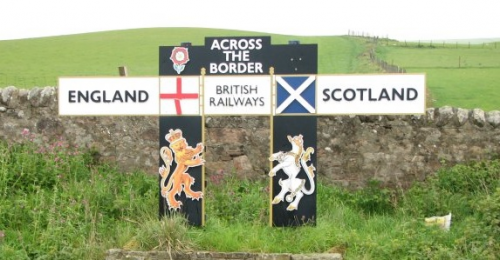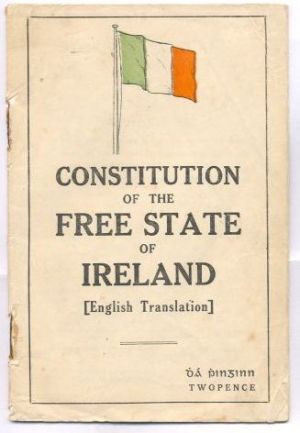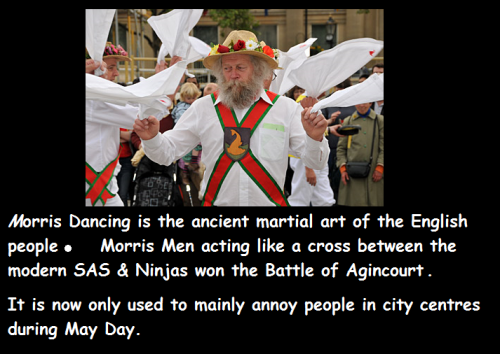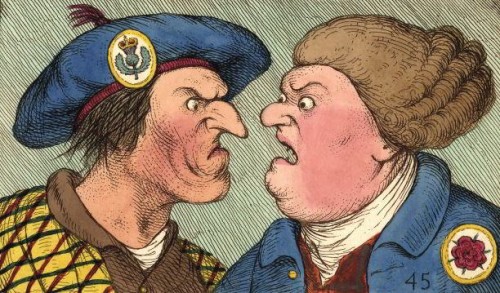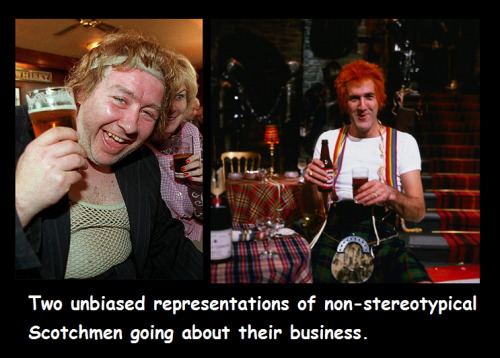I have to be honest here and say that regardless of which side of the divide you may be on the Scottish referendum we must be surely chuffed to bits that we’re dealing with it in a fairly mature manner and not resorting to violence to resolve such weighty issues. It wasn’t that long ago really, around 90 years or so that a former and very large, very important part of the UK broke away from the Union and the ‘Nation’ to go it alone and that took one hell of a bloody guerrilla war followed by a lengthy civil war as well as a legacy of bitterness between the UK & The Republic of Ireland that largely lasted until very recently. Sort of puts the usual egg chucking & heckling into perspective a bit doesn’t it?
The thing is many people in modern Britain are probably only dimly or maybe even not at all aware depending on their ages, education or interest in the matter that Ireland had ever been part of the UK at all and simply take it for granted that there happens to be an independent nation called Ireland next door to us just as they have taken it for granted that (so far at least) there is a United Kingdom to say nothing of the many smaller Home Nations that make up the wider whole: Wales, Scotland, N.I and England all crammed into its rather snug borders (notice how I left out Cornwall? Pffft! Bitch please!)
Oh and before I get emails please note the Isle of Man and the Channel Islands are not a part of the UK but are crown dependencies.
Personally I find the concept of nationalism a bit of a silly pastime and of little concern but maybe that’s because I’m English (well as English as anyone who has a Welsh surname at any rate) and we’ve largely and steadily reduced our identity and national story to little more than the last night at the Proms, Coronation Street and men in white clothing leaping and jumping around with bells attached to their limbs waving hankies and knocking sticks together whilst backed by some rocking accordion music as well as …er? Well, Hobbits I suppose.
We also tend to ignore the more militant side of our pasts unlike our ‘Celtic’ cousins partly through not wishing to ‘offend’ anyone in our modern multicultural country and I suspect mainly because we ourselves find such things like waving the St George’s Cross flag around distasteful seeing as how these symbols have more often than not been hijacked by football hooligans, BNP Skinheads and rather ranty old bar soaks in the past. Or maybe we’re just a little bit worried that once we delve into our more war like history we might get to like it and pretty soon we’ll be marching back up ‘north’ to nick the Stone of Destiny again.
To be honest though when you do start to scrutinise the origins and myths of any such romantic nationalism and the creation of any national or ‘ethnic’ identity be it Scottish or English under the harsh glare of a sceptical magnifying glass it all becomes evidently about as genuine as any fantasy world inhabited by bloody Orcs & Hobbits anyway.
Sure there’s a lot of idiots in the ‘YES’ campaign ranting about ‘English rule!’ and ‘English dominion!’ and even protesting outside the BBC against perceived bias against them (Which was odd as the No vote had claimed the BBC was biased against them) turning what is supposed to be a debate about ending centralized rule from a single unitary Parliament in Westminster into a bit of a moronic and simplified ‘us & them’ argument based on ‘race’ intending to do little than settle old scores and supposed or genuine slights as well as who is and even creating a dodgy debate about who isn’t a “True Scot” as Scots who have moved out of Scotland and might only live an hour’s drive from the border are denied a vote in the matter yet EU migrants who arguably have little emotional connection to the country but currently live and work in Scotland (and might very well only be there temporarily) can have a vote. A lot of the Anglophobic ranters of course helpfully choose to ignore the huge role that the Scots have played in the creation of that very same shared Parliament and in English life even before the Act of Union, (To say nothing of the last two PMs being Scottish and the current one being Anglo-Scottish at the very least) but that’ll always be the case. I’m sure if we had a similar vote here there’d be elements of the EDL marching up and down the street making us all look bad.
“A Parcel O’ Rouges.”
Even if Scotland does gain secession from the Union it won’t be the end of the world that some would have you think. The current Union’s only about 300 and so years old and way before that we managed to cooperate at times rather well with the same Monarch but entirely differing parliamentary systems and laws. So why and how did the Union come about if the old system kinda worked as it was previously? First we have to look at previous attempts at closer partnership between our two nations.
The first proper “Union” of sorts, and mainly in name only, was that of the ‘Union Of The Crowns’ in 1603 when the very Scottish King James VI of Scotland became on the death of the childless Elizabeth I, king of two kingdoms and James I of England. Like many a Scot who had done rather well for himself and now had a few quid to his name he promptly packed his bags and headed down south to London although not to hang around the nearest train station sipping on strong cans of lager and screaming nonsensically at pigeons. After he’d made this move he only returned to his homeland once and his absence had the unfortunate but entirely understandable effect of damaging the reputation of the Scottish dynasty back home for a fair many loyal Scottish subjects. At any rate this Union was not a joint administrate nor centralized one, officially at least (although it did act jointly for Scotland & England in matters of diplomacy) but due to the Stuart’s great dislike of heading back home it had necessitated that Scottish nobles and advisors travel to London and take up lodgings to be close to their king and facilitate his will and his rule back in Scotland.
James I/VI seemed like many a British Monarch to harbour grandiose plans at creating an Imperial Britain which consisted of a single nation of many peoples and he ordered the ‘Union of England & Scotland Act 1603’ (actually little more than a fact finding commission to test the waters) to look into the practicalities of making this a reality. At any rate regardless of how serious he might have been with this plan the legacy of hundreds of years of animosity, suspicion and at times warfare between the English & Scottish meant that would be a tall order for even an absolute monarch like James to pull off. Simply nobody liked the idea, the English worried that with a new Scottish king their ancient country would vanish being flooded by Scottish courters and the Scots worried that despite their Scottish King pretty much the same thing would happen but with the king ignoring the North in favour of his new English bets buds. In fact so unpopular was the idea of any true political union that you start to wonder if James was a bit like a bad host at a party where several guests just refuse to get on no matter how much is drunk or what music you put on the stereo and spread a malaise around the front room with their bitchy gossip and James oblivious to the body language and signals being given off.
After this Union of the Crowns which unsurprisingly ended with the execution of Charles I and the disestablishment of the Monarchy the new republican Commonwealth briefly replaced the Union although this was again far from being popular with parties on all sides with the memories of the recent Civil Wars in all the three Kingdoms being bitter. After the Restoration though the unofficial Union once again came into effect and so England and Scotland would continue to progress separately although both being tied by binds of a shared Monarchy and royal concerns but differing laws, parliaments, goals and military structures: A Royal Scottish Army and a Royal English Army existing separately for a while at least.
1707: The Lion and the Unicorn finally “get it on”.
How did the act of Union get pushed through both parliaments despite it being divisive and unpopular with some people?
One major factor had to be that previous Scottish attempts to create a separate trading empire to match those of other European powers and that of England failed drastically and practically bankrupted the Scottish economy in the process. The Scots had been attempting to set up colonies along the lines of the successful New England model since the 1600s in places as diverse as Nova Scotia and South America but the gamble despite the positive stereotype of your canny Scot failed to be a money spinner and now very deeply in the shit some bright sparks amongst the Scottish thinkers and politicians (also many of them former investors in the failed Darien Scheme) pushed for a merger like one you would see in any big business venture with their more successful neighbour/ associate business down south (England PLC) who could bail them out and invest capitol in more crazy schemes.
Again there were people on both the English and Scottish sides who did not wish to see such a Union, the English worried that it would have a knock on effect for the wealth of England. A nation who had always been far richer than Scotland and whose booming Empire would now become open to Scottish ventures. English money would have to be used to be invested in Scotland and to modernise all aspects of Scottish life from security to infrastructure intended to make it viable as a working partner. This was seen as being little more than a bail out by some in England who wondered what such a small and poor country like Scotland could bring to the table and an all out bribe by some in Scotland. A modern equivalent would be the worries often voiced by wealthy Western European members of the EU whenever a smaller, poorer Eastern or Central European nation seeks admittance into the club.
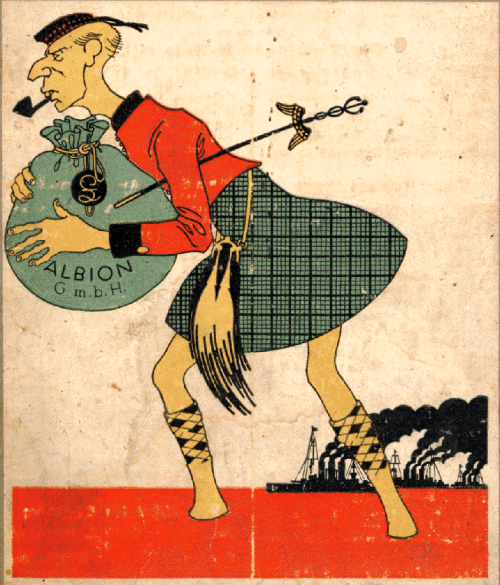 From some observers in the Scottish side of things it wasn’t much of a choice as England threatened to block much needed trade between the two countries and with their colonies overseas via the ‘Aliens Act 1705’ unless the Scots entered into talks about joining a single Parliament. The Union eventually begins to look less like a business merger and more like an outright hostile takeover with the English sympathisers in the Scottish Parliament winning out and agreeing to English demands amid accusations of backhanders that still hang over the affair. So stuck between a rock and a hard place and with the nation utterly divided on the matter Scotland signed itself into the Union properly and a single Parliament. This in theory saw the end of both countries and with the Act of Union the birth of an entirely new one with both partners as equals who would go on to paint the globe a nice shade of pink. Take a look at a map of the British Empires height and then randomly select one of those pink sections and look it up online, sure enough you’ll more than likely find a large proportion of Scots or Scottish names were involved with its founding, colonisation or discovery…. They’re also to blame for the Canadian accent by the way.
From some observers in the Scottish side of things it wasn’t much of a choice as England threatened to block much needed trade between the two countries and with their colonies overseas via the ‘Aliens Act 1705’ unless the Scots entered into talks about joining a single Parliament. The Union eventually begins to look less like a business merger and more like an outright hostile takeover with the English sympathisers in the Scottish Parliament winning out and agreeing to English demands amid accusations of backhanders that still hang over the affair. So stuck between a rock and a hard place and with the nation utterly divided on the matter Scotland signed itself into the Union properly and a single Parliament. This in theory saw the end of both countries and with the Act of Union the birth of an entirely new one with both partners as equals who would go on to paint the globe a nice shade of pink. Take a look at a map of the British Empires height and then randomly select one of those pink sections and look it up online, sure enough you’ll more than likely find a large proportion of Scots or Scottish names were involved with its founding, colonisation or discovery…. They’re also to blame for the Canadian accent by the way.
So in the end a smaller and poorer partner became the intellectual powerhouse of Britain’s ambitions.
In many respects one of the biggest mistakes in the creation of the United Kingdom was not in selecting a more centrally based location in the brand spanking new country (but a new country with some very old emotional baggage that hundreds of years of complex and interwoven history between all parties will create) for its capitol and therefore allowing MPs from all these supposed partner Nations to meet in a more neutral space rather than that of the obviously very English London. Not only did the retention of London (which since the Union of the Crowns in 1603 had pretty much taken on many aspects of a De-Facto and unofficial capitol for Britain as a whole) have the unfortunate side-effect of adding to the substantial list of concerns about fair and unbiased representation from some within the Scottish Parliament it also meant that in the long run and however unintentional it might have been as well as no matter how many Scots might have had a hand on the wheel which steered the course of that united British power over time, the British Empire as well as the UK and the terms “Briton” and “British” would simply come to mean England and the English for many outside observers as well as the English themselves.
This is still a point of contention with many Scots, Welsh and Irish that whilst athletes from these Home Nations are winning at their chosen sports they’re ‘British’ in the eyes of the UK media but as soon as they lose they quickly seem to revert back to being Scottish, welsh et al.
Summing Up
And now we’re faced with the biggest shake up of the UK since 1922 and the establishment of the Irish Free State and Northern Ireland and understandably people are just as concerned about the political fall out and what (if anything) will it mean in everyday real terms for them if Scotland really does go it alone. Personally I’m not that worried about whatever the outcome might be. In fact it may be a good thing if only because we all might start to grow up a bit and relax about such silly ideas around nationality. No longer will the English get the blame for every political mishap north of the border and no longer will Scotland get the blame when Andy Murray drops a clanger. Hopefully chips will be brushed off all shoulders.
My only genuine concern would be if an extreme of English nationalism or regionalism saw calls for English regions to then be devolved back to the old Heptarchy Kingdoms of Mercia, Northumbia, Wessex, Anglia, Sussex, Kent & Essex or that the North of England might simply call up Denmark and ask if they could reinstate the Danelaw Or even the City of Liverpool digging a huge moat around itself, filling it with water and simply floating off to settle somewhere in the Atlantic Ocean. There are even those quite serious calls from a few fringe lunatics that Cumbria to be granted similar status to that of Cornwall because like Cornwall Cumbria has a long dead Brythonic culture that left a legacy mainly in bastardised place names.. enough they think to justify reviving the old ‘Cumbric’ language and in seeking home rule.
Think that’s a bit far fetched? Well looking at Europe we’re in a time of great change with many smaller regions seeking greater and greater recognition and self rule from North Italy, Bavaria, Brittany and Catalonia and all have said they’re watching to see how Scotland decides to judge how best to proceed with such ideals in the future… so we’ll just have to see.

